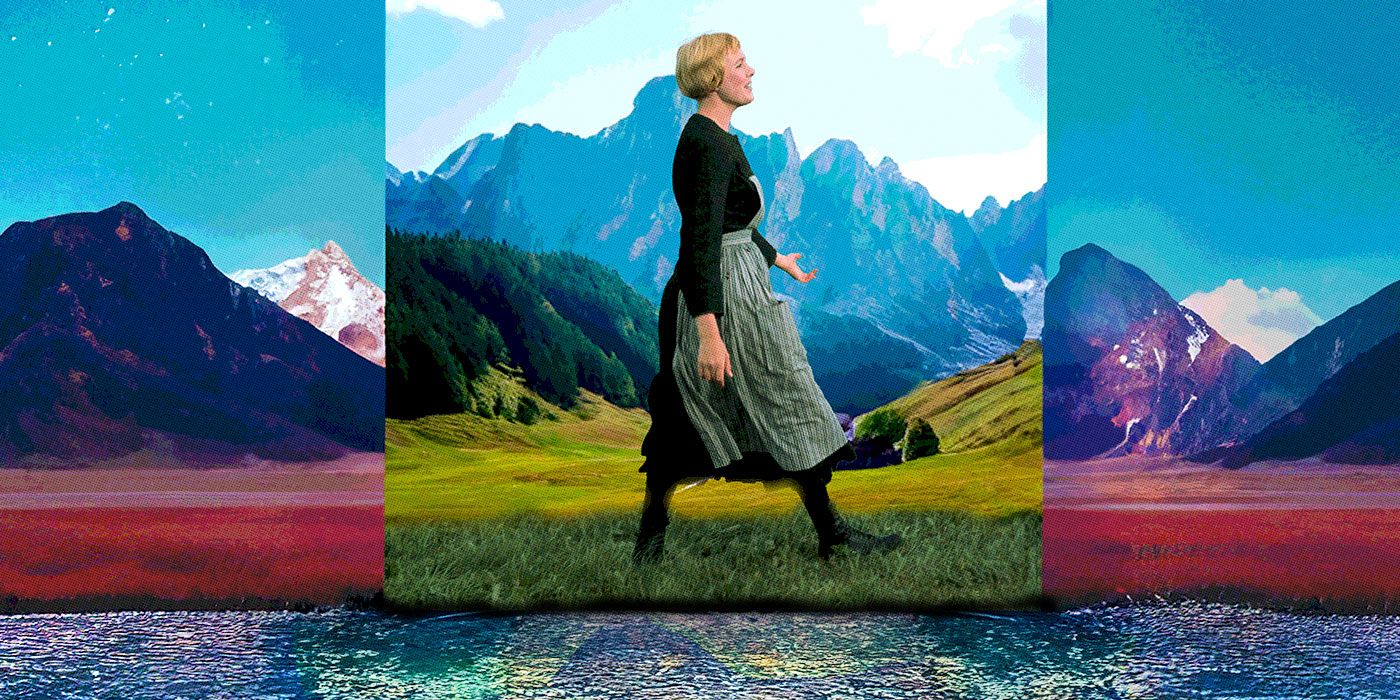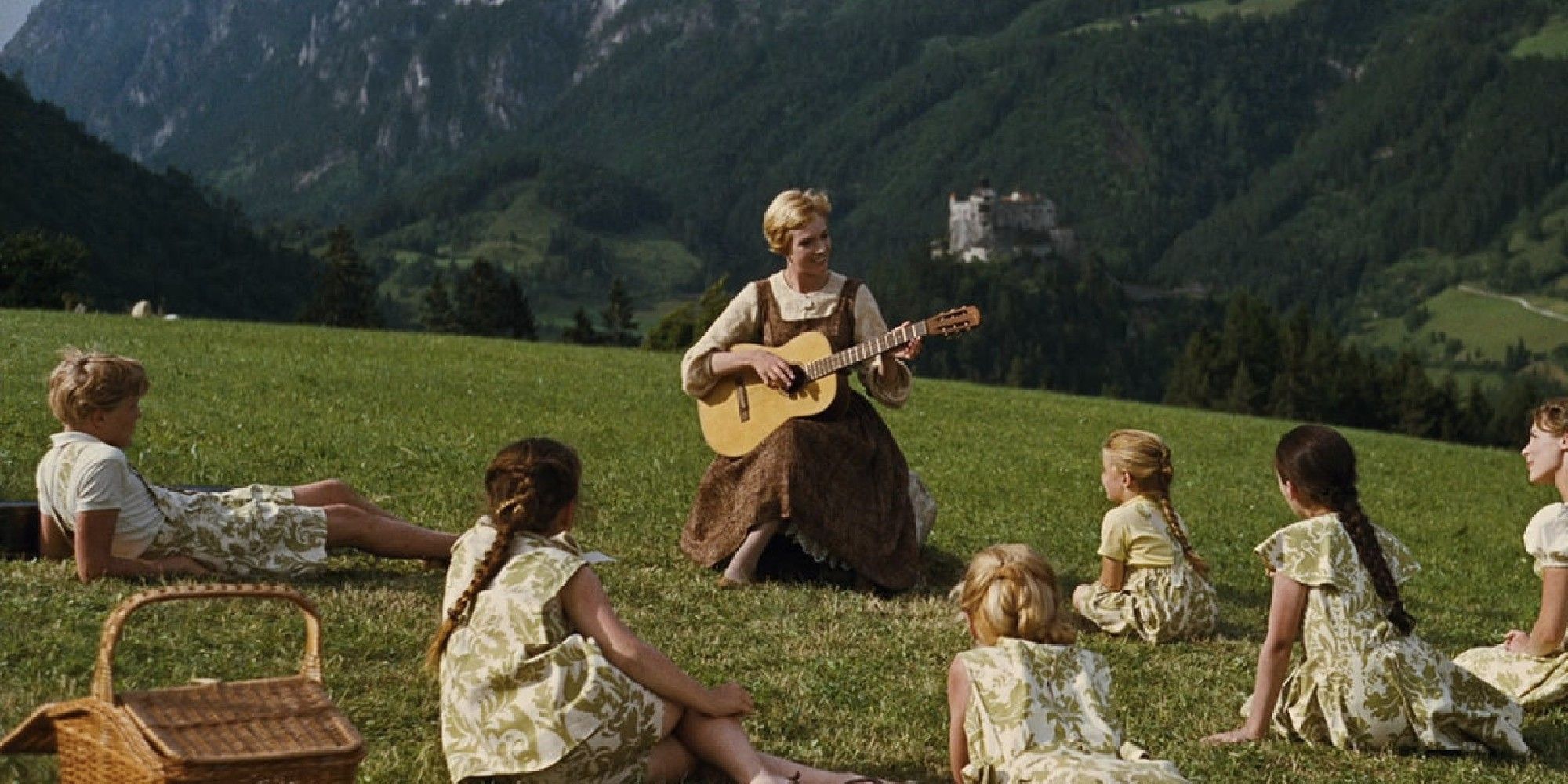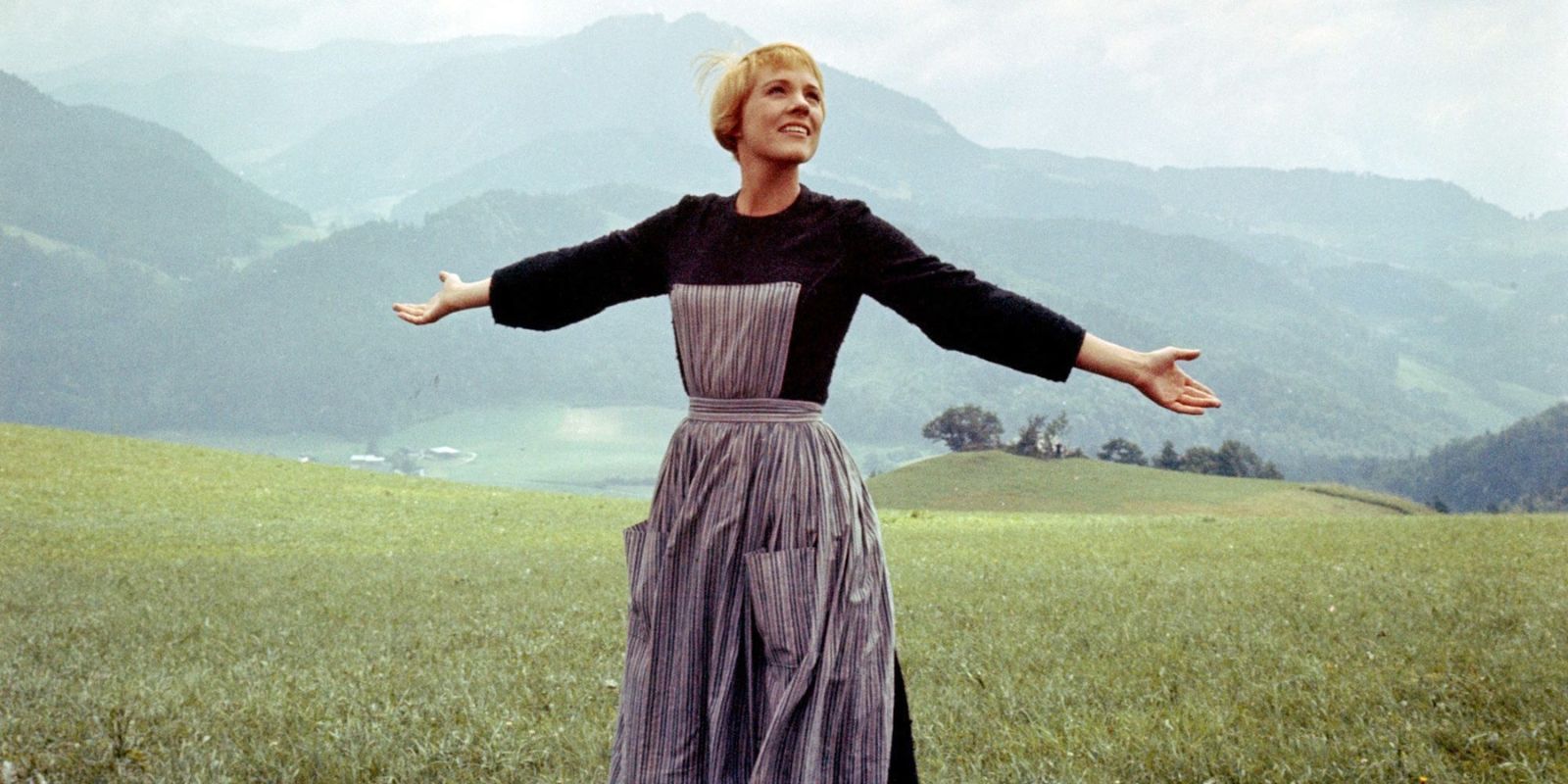The Big Picture
- The Sound of Music has a serious turn near the end, focusing on the von Trapp family’s escape from the Nazis during World War II.
- An alternate ending to the film removes the family’s escape, while still ending on a happy note, but it was not authorized by the company, and the true end was later restored.
- The film wasn’t popular in Germany and Austria due to historical inaccuracies, representation, and competition with a beloved adaptation of the von Trapp story.
The Sound of Music has endured for decades, enchanting audiences with a heartwarming story, classic songs, and, of course, Julie Andrews‘ performance. In 1965, the Rodger and Hammerstein musical of the same name was adapted into a beloved film featuring the free-spirited Maria (Andrews) and what happens when she connects with the von Trapp family. As she gets to know the seven children, she demonstrates the warmth missing from their lives, and though initially they clash, Maria falls in love with their father. With this as the main conflict, the classic film is about music, love, family, and, strangely, Nazis.
Set in Austria during the beginning of World War II, the world events are unavoidable, especially as it is loosely based on the real von Trapp family, requiring some amount of historical accuracy. But the film didn’t always look as fans now remember it. In the years since its release, many stories have come out about making The Sound of Music, much to the delight of fans. The cast and creators have shared everything from the original vocals that the film replaced to a chilling story of an on-set accident. Julia Antopol Hirsch‘s book, The Sound of Music: The Making of America’s Favorite Movie, gives a behind-the-scenes look at the film through exclusive interviews and content, including one story about an alternate ending to the film.
The Sound of Music
A young novice is sent by her convent in 1930s Austria to become a governess to the seven children of a widowed naval officer.
- Release Date
- April 1, 1965
- Director
- Robert Wise
- Rating
- G
- Runtime
- 172 minutes
- Writers
- Howard Lindsay , Russel Crouse , Ernest Lehman , Maria von Trapp
- Studio
- 20th Century Fox
How Does ‘The Sound of Music’ End?
Like the many memorable musicals from Hollywood’s Golden Age, The Sound of Music has a light-hearted reputation, which the story earns, despite dealing with heavier content, especially near the end. The musical spends so long on the happy, feel-good story of the first two acts that it is easy to forget the serious turn it takes. The film focuses on Maria as she leaves her home in the Abbey to care for the von Trapp children, Liesl (Charmian Carr), Friedrich (Nicholas Hammond), Louisa (Heather Menzies), Kurt (Duane Chase), Brigitta (Angela Cartwright), Marta (Debbie Turner) and Gretl (Kym Karath). Maria teaches them to sing, takes them on adventures, and eventually falls in love with their father, Captain von Trapp (Christopher Plummer). Though this isn’t without complications, the two get married, but that isn’t the end of the movie.
The couple returns home from their honeymoon when the Third Reich annexes Austria, providing another problem for Maria and the Captain. The Captain is ordered to the German Naval base to serve, but as he strongly opposes the Nazi ideology, he decides to flee Austria with his family. But they are under observation. Claiming to go to a performance at the Salzburg Festival, the family attempts to cover their tracks by disappearing during their show. Mother Abbess (Peggy Wood) hides them from their Nazi pursuers, and with the help of the Nuns, the family finally escapes to the Swiss border. Though this is unlike the historical events of the family, it does give the musical the happy ending expected from the genre. With the Nazi elements in the story and many historical inaccuracies, there are many contributing factors as to why certain countries didn’t like the film, but one has to do with an unauthorized alternate ending.
‘The Sound of Music’s Alternate Ending Doesn’t Show the Family’s Escape
The Sound of Music was released around the world, but not all countries saw it the same way. While it gained acclaim in America, other countries didn’t have the same love and enthusiasm for it. In particular, Germany and Austria (where the story is set) were less than thrilled with the film. In her book, Hirsch explains that not every moviegoer saw the same ending. But in this case, the alternate ending shown was less of a change than an early conclusion. 20th Century Fox’s Munich branch simply avoided the Nazi themes by ending the film early. In this version, Maria goes back to the Abbey to avoid her feelings for the Captain. At the encouragement of Mother Abbess, she returns to the von Trapp family, much to the family’s joy. Maria’s return causes the Baroness (Eleanor Parker) to peacefully end her engagement to the Captain. Finally, the two romantic leads acknowledge their feelings, and they marry. While normally the story continues, the alternate version ends there, with a happy conclusion and less Nazi involvement. The issue of the Nazi party is introduced earlier in the film, so even this version included some references to the impending war, but it ignored the important plot thread of the von Trapp family’s escape, leaving the von Trapps in a dangerous situation.
However, the alternate ending did not last long, as the cutting of the end was not authorized by the company. The director, Robert Wise, intervened, resulting in the restoration of the intended ending and the firing of the manager who allowed the change. The cut was drastic, yet it seems the people at the Munich branch felt strongly about avoiding the end of the film. The conclusion touches on a pivotal moment in history but doesn’t set it up as expected. The fact is, such a serious historical event doesn’t fit seamlessly into the family musical. In places that experienced this division, it was a tender subject, and people felt The Sound of Music made light of the event. Therefore, they tried to remove it. In the original release, Germany saw an alternate version of the story that cut the end, removing the final political conflict. This version leaned even more into the light and family-friendly side of the story. Though the more familiar conclusion was eventually restored, this is credited as one reason the film didn’t do as well in Germany.
‘The Sound of Music’ Wasn’t Popular in Germany or Austria
The film met massive success in many parts of the world, causing it to be remembered over half a century later. However, despite the story originating in these countries, neither Germany nor Austria were fond of the film. The underwhelming ending that Germany saw played a part, though Hirsch suggests other reasons as well. For one thing, Austrian viewers, in particular, were angered by the inaccuracies in costuming, which were not in the traditional style of the country. The Sound of Music also used show tunes instead of Austrian folk songs, which was not considered a positive change. Furthermore, the film had to compete with Die Trapp-Familie, a much-loved rendition of the von Trapp story made a decade before The Sound of Music. That film and its sequel were widely popular in German-speaking countries. Rodger and Hammerstein based their musical on Die Trapp-Familie but made changes that removed The Sound of Music further from the true story.
The Sound of Music wasn’t intended to be biographical
, according to Hirsch’s book.
The Sound of Music: The Making of America’s Favorite Movie
describes a meeting between
Robert Wise
and
Maria von Trapp
, where Wise made it clear his film wasn’t a documentary and would use dramatic freedom. While many of the grievances could not be corrected, the cut end was, though the additional content may not have helped the film’s popularity.
This alternate ending doesn’t provide any unseen footage and makes no change to what is available, but the events that led to it make an interesting story.
The Sound of Music is available to watch now on Disney+ in the U.S.
WATCH ON DISNEY+






